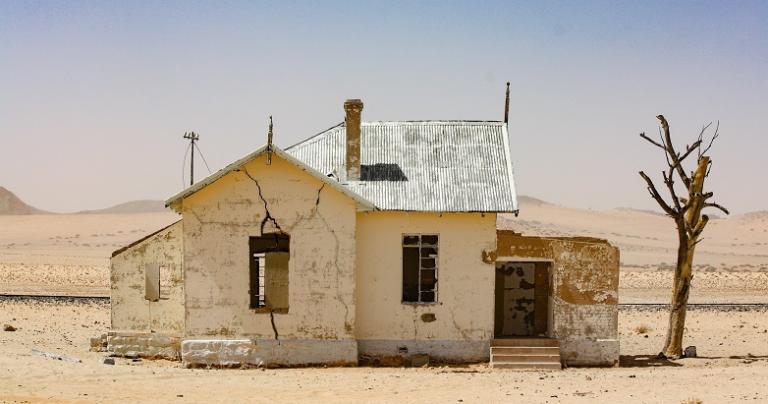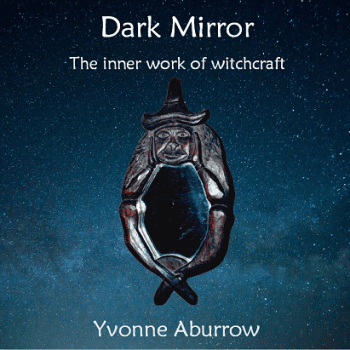Hello, beautiful creatures.
Previously on Outside the Charmed Circle, what started as an innocent query about making friends with one’s backyard garden metamorphosed, over the past couple of weeks, into something between a jeremiad and a mobilization: a call to arms, if you will. We’ve spent some time talking about communing with the land, including some thoughts on the dangers of doing so, and I’ve shared a few personal anecdotes about my experiences relating to the spirits of place. In that time, it’s been pointed out by a few commentators that, while my posts in this series have been pretty explicit about the risks of communing with the land, they’ve been a bit thin on reasons one might choose to do so. After all, as I cited Ramsey Dukes to point out, the very act of listening to the spirits of the land is asking to get an earful of abuse. Why would anybody do that?
There are a few reasons, really. I’ve alluded to them in previous posts, but let’s name them explicitly, and unpack them a little more.
Checking Your Alignment
I’m not here to tell anyone what they should believe, nor how they should practice. With that said, I’m a proponent of our practices being aligned with our values, and of being aware when those things are misaligned. For instance, if someone were to tell me they’re vegetarian for ethical reasons, but that they wear leather for fashion reasons, I’d probably question the alignment of their beliefs and their practices. Me, I spend a lot of time railing about the deleterious influence of Amazon on local economies—including that of my home city, where they’re currently headquartered—but that doesn’t stop me from giving them money for books I can’t find at my Friendly Local Bookshop. I network with activist friends, donate to causes, and try to stay informed and engaged with current events, but I do a lot of that on a smartphone made in China, almost certainly by child or slave labor.
Am I a hypocrite? Are we all hypocrites? To some extent, yes. Most of us have these misalignments in our praxis. It’s a human thing; we know what our values say we should do, but we also know what would be easier, or faster, or more comfortable. We may believe these shortcuts around our beliefs aren’t a big deal in the long run, that “it all comes out in the wash,” or we may simply choose to ignore them, because the alternative is to completely dismantle our way of living, move into the wild, and become feral. This may sound utopian to some, but it’s entirely impractical, even inaccessible, for others.
It’s hard enough to process this when we’re merely talking about life in the day-to-day world of work, school, traffic, shopping, family, and friends. Once we start to touch on the less quotidian world of gods, spirits, and the elemental forces which comprise and propel the whole of the universe, things get a bit stickier. Those issues of alignment are bad enough when our consciences are chomping on us for not doing more to support charities or demonstrating against racial and social injustice, but when you add sorcerous or divine influences to the mix… hoo, boy.
It’s at this point that I’ve often found my own practice, and that of many other polytheists, Pagans, and magical practitioners, to be more than a bit out of alignment with our stated values.
What do I mean? Well, as an example, how many of us invoke and call upon the powers of Earth in our rituals, either in an abstract “elemental” fashion or in the person of a specific deity? More than a couple, I’m guessing? Now, how many of us drive or ride in gasoline-fueled vehicles, buy food from grocery stores, use products made from plastic, or in any other way contribute to the consumption and depletion of petroleum? Everyone reading this. After all, this is published on the Internet, which means computers, which means an entire infrastructure built on petroleum resource depletion, which… well, you get the idea.
Even as we invoke the land, we contribute to its destruction.
So, back to the question. Why listen to the land? Why open ourselves up to abuse? Why do something so patently unpleasant and potentially dangerous? Here are three reasons, related but separate, to get us started. As time goes on, I have every faith that you’ll find your own to add to this list.
Enlightened Self-Interest
This one is pretty simple: We live here. It’s in our own best interest to listen to the land on which we live, move, and have our being, if for no other reason than to save our own asses from disaster. The land is crying out in every language it possesses, trying to warn us that we’re defiling our own home and our own natures, blaspheming against the spirits of our siblings and ancestors… and, let’s be honest, here’s the kicker: we already know this. We’ve known it for a long, long time. This isn’t “hippie talk” or radical eco-anarchism. The simple truth is that, on our present trajectory, we’re doomed. For a Pagan perspective on this, both explicitly and implicitly, John Michael Greer has written a number of books on the subject, which you’re likely to find educational and depressing in about equal measure.
Awareness Incurs Responsibility
…or, to phrase this another way, if you know something is wrong, do something about it. Of course, that’s incredibly easy to say, and a lot harder to put into practice. Then again, I literally don’t know a single person who got into magic, Paganism, or polytheism because they were easy. If you’re reading this, you already know there are problems all around us, ecologically and spiritually. One of the consistent components of p-word spirituality is that we don’t get a “savior.” No one is coming to save us; no Jesus, no Superman, no Tony Stark. We are all we have, which means that we’re the ones responsible for saving us, if we’re to be saved at all. This, of course, points back to item #1, “enlightened self-interest.” The first step in saving ourselves is knowing what we need saving from, and the only way to learn that? Listen. Open your ears to the land and its spirits, even though they rage and wail and curse. Only by listening can you learn the full measure of their pain and sorrow, and work to heal it.
We Are Accountable
On top of that responsibility incurred by awareness is the responsibility incurred by complicity. The land and its spirits are wounded, sick, violated, profaned, and defiled: of this, there can no longer be any reasonable question. Who did the deed? We did. Us, our ancestors, their ancestors. All of us who partake of modern society are the inheritors of a world created by our forebears, and “all of the privileges, rights, and responsibilities pertaining thereto.” We use the machines and mechanisms of modern life, all of which are fueled by destruction. As I mentioned before, we can’t all simply forswear modern life and adopt an Edenic, utopian lifestyle, but neither can we simply bury our heads in the sand and pretend that change isn’t coming. The debt incurred by our ancestors and our earlier selves is coming due, and we are accountable. If we want to live here—if we want to breathe this air, drink this water, warm ourselves at this fire, feed ourselves from this soil—we have no right to ignore the land and its spirits. We owe them, and that begins by hearing the full account of our debt.

We must become a witchcraft with a renewed sense of meaning and purpose, of responsibility to the land which is in crisis, or we are simply consumers of the earth which will all too soon eat of us. […] Witchcraft is profoundly animist, and that means we have responsibilities to fulfil. There is no hierarchy of actions, no purity test as to how practitioners use this knowledge, each will find their own innate response that is generated from their own circumstances and the needs of their community of spirits.
I don’t expect everyone reading this to be a witch, or indeed to be a polytheist, a Pagan, an occultist, or any sort of magical practitioner. I do expect, however, that all of you are human. Whatever our practices or beliefs, or lack thereof, we have a shared destiny, and a shared responsibility. We will stand or fall together based on the actions we take, each and all of us, individually and collectively. I can’t tell you how to respond to the needs of the land on which you stand because I’m not there, and I’m not you. I can only implore you, from the core of my being, to start by reaching out and listening. From there, you can act in alignment with your own values, and with the spirits of place.
Ultimately, the beliefs and values we claim are irrelevant. Show me what you do, and I’ll know what you believe.
Until next time, dear ones, try to be both wise and kind. ♥
















